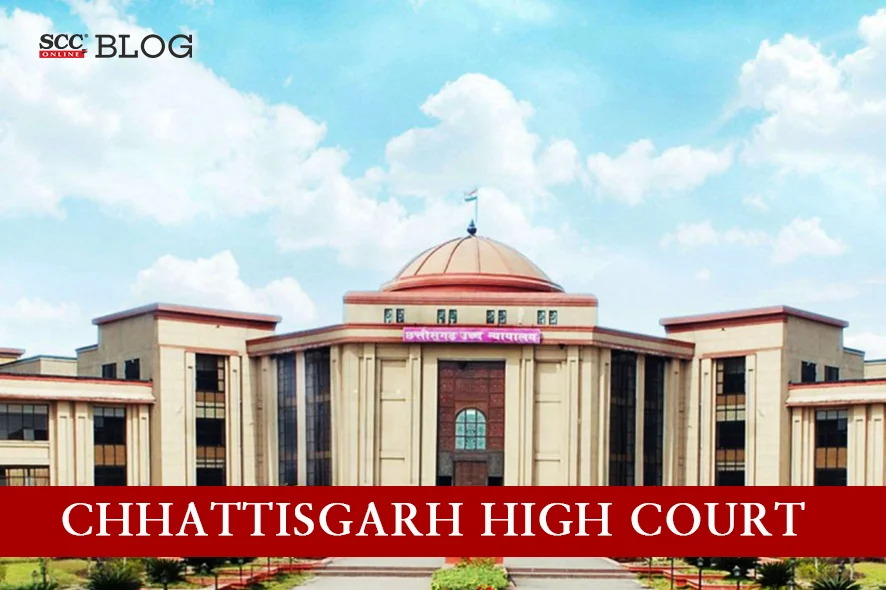Chhattisgarh High Court: In a case wherein, the petition was filed under Section 482 of the Criminal Procedure Code, 1973 to quash the charge-sheet and set aside the order dated 18-09-2017, Ramesh Sinha, CJ., opined that the any demands made by the petitioner to recover the loan amount could not be treated as an abetment, as any person who had given loan would certainly like to get it back. Thus, the Court discharged the petitioner form the charge under Section 306 of the Penal Code, 1860 (‘IPC’) and set aside the order dated 18-09-2017.
Background
In the instant case, the deceased’s husband, a government teacher introduced a government scheme related to Prime Minister Vikas Kaushal Scheme (‘the Scheme’) to the petitioner. The deceased’s husband gave detail of the benefits that, if under the Scheme, any institution worked, they would be able to get Rs. 10,000 per student on the condition that the student would firstly have to deposit Rs. 12,000.
The petitioner provided Rs. 10 lakhs to the deceased’s husband with the help of Leela’s Foundation. The deceased’s husband dishonestly did not return the share of the money to the concerned institution including the petitioner’s institution.
When the present petitioner made a request to the deceased’s husband to repay the amount, the deceased’s husband, in whose account the Leela’s Foundation had deposited the huge amount of money stated that he had not taken the amount from Leela’s Foundation and also, he had not returned the money to the investors including the present petitioner.
Subsequently, the petitioner came to know that the deceased’s husband’s wife and his three children had consumed some poisonous substance and also, wrote a suicide note. However, the three children survived but the wife passed away. Accordingly, the prosecution agency filed the charge-sheet against the petitioner for an offence under Section 306 of the IPC.
The Trial Court vide order dated 18-09-2017 framed the charges under Section 306 of the IPC read with Section 107 of IPC against the petitioner. Further, the petitioner filed an application under Section 138 of the Negotiable Instruments Act, 1881 against the deceased’s husband which indicated that the deceased’s husband had taken money from the petitioner.
The question that arose before the Court was whether even on considering the entire material available on record to be correct and true, a prima facie case for an offence punishable under Section 306 of IPC was made out against the petitioner.
Analysis, Law, and Decision
The Court opined that it was the duty of the prosecution to establish that such person had abetted the commission of suicide. In the present case, there was no material on record that the petitioner in any manner instigated or engaged in any conspiracy or intentionally aided the deceased for commitment of suicide.
The Court relied on Ramesh Kumar v. State of Chhattisgarh, (2001) 9 SCC 618, and opined that the order passed by the Trial Court for framing the charge of offence under Section 306 of the IPC against the petitioner was not sustainable. The Court opined that even if the prosecution version was true and correct, there was no material available on record to establish that the petitioner had adopted any coercive methods to recover the loan amount. Further, if there was any demand made by the petitioner to recover the loan amount, that could not be treated as abetment, as any person who had given loan would certainly like to get it back.
The Court opined that if there was any unlawful activity performed by the petitioner in order to recover the loan amount, either the deceased or her husband could have taken shelter of any competent court of law or at least made a complaint before the police authorities, which was missing in the present case.
Thus, the Court discharged the petitioner from the charge under Section 306 of the IPC and set aside order dated 18-09-2017 passed by the Trial Court.
[Shaila Singh v. State of Chhattisgarh, 2023 SCC OnLine Chh 4132, Order dated 17-10-2023]
Advocates who appeared in this case :
For the Petitioner: Awadh Tripathi, Advocate;
For the Respondents: Madhunisha Singh, Deputy Advocate General.








